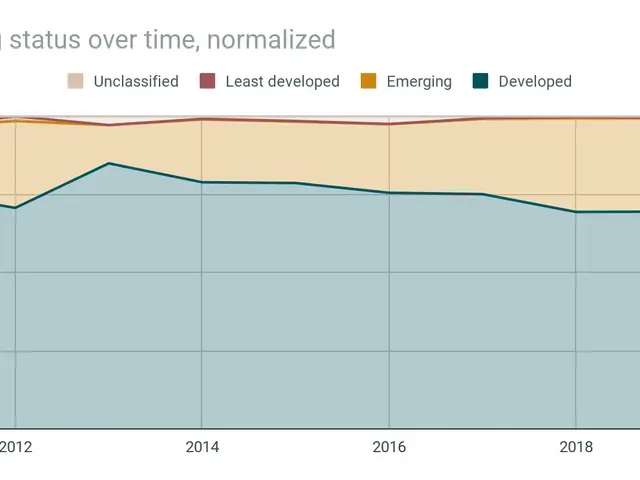Future-proofing community banking for UK building societies: strategies for long-term success
In the ever-evolving financial landscape, building societies find themselves at a pivotal moment, grappling with the question of how to adapt successfully without compromising their long-standing 'members-first' ethos. This transformation is not a matter of choice, but a necessity, as the UK government aims to double the size of the mutual sector, adding further urgency to the situation.
For 250 years, building societies have been guided by this member-centric philosophy, and it's this ethos that has allowed them to thrive, even in times of uncertainty. This member ownership model enables societies to reinvest profits into better rates, local initiatives, and long-term stability, which resonates deeply with their members.
However, the demographic landscape is changing. Building societies are faced with an aging member base and struggle to attract the younger generation of savers. The market share of building societies among 18-34-year-olds stands at 24%, a figure that underscores the need for adaptation.
Legacy technology is one of the main obstacles slowing down the speed to market for building societies. New approaches to core banking, such as the meta core, can help harmonize in-branch and digital experiences, catering to the changing needs of members at a massive scale, while reducing risk and cost.
Core transformation is crucial for accelerating product development, cutting costs, and strengthening resilience against cybersecurity threats and service outages. Smaller societies, which often lack the resources for standalone tech investment, may benefit from collaborative models such as shared digital platforms or joint ventures.
Cooperative banks like Germany's DZ Bank have demonstrated this potential by establishing joint digital platforms, such as Impleco with PIA, a white-label solution enabling regional and personalized real estate services. These shared ventures democratize access to innovations for smaller cooperative banks.
The Labour government's manifesto commitment to double the sector highlights growing recognition that mutuals are vital to a fairer economy. The first building society, established in Birmingham, UK in 1775, set the stage for this member-driven approach. Today, as building societies face economic volatility and demands for digital-first convenience, they must adapt to remain relevant and connect with younger generations.
In a recent study, building societies were ranked as the businesses most likely to act with their customers' interests at heart. This trust, built over centuries, must not be squandered. By embracing change and innovation, building societies can not only survive but thrive, ensuring they continue to serve their members effectively for generations to come.
Read also:
- Peptide YY (PYY): Exploring its Role in Appetite Suppression, Intestinal Health, and Cognitive Links
- Toddler Health: Rotavirus Signs, Origins, and Potential Complications
- Digestive issues and heart discomfort: Root causes and associated health conditions
- House Infernos: Deadly Hazards Surpassing the Flames








